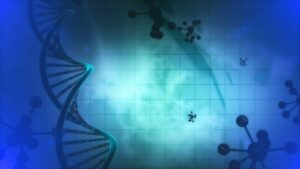Assessment of Myocardial 18F-FDG Uptake at PET/CT in Asymptomatic SARS-CoV-2-vaccinated and Nonvaccinated Patients
This study surprisingly showed nearly all of the vaccinated hearts work 46% harder for at least 6 months after vaccination. It concludes: When compared with nonvaccinated patients, asymptomatic patients who received their second vaccination 1–180 daysprior to imaging showed increased myocardial 18 F-FDG uptake on PET/CT scans.© RSNA, 2023Supplemental material is available for this article.
OpenSAFELY: Effectiveness of COVID-19 vaccination in children and adolescents
Among both adolescents and children involved in this study, only those vaccinated showed signs of myocarditis and pericarditis – vaccinated groups, with rates of 27 and 10 cases/million after first and second doses respectively.
Conclusion BNT162b2 vaccination in adolescents reduced COVID-19 A&E attendance and hospitalisation, although these outcomes were rare. Protection against positive SARS-CoV-2 tests was transient.
Myocarditis after SARS-CoV-2 infection and COVID-19 vaccination: Epidemiology, outcomes, and new perspectives
Conclusion:
Case of Myocarditis, Pericarditis, and Fatal Aortic Dissection Following Covid-19 vaccination
Determinants of COVID-19 vaccine-induced myocarditis
Conclusion:
Commentary: raised c-troponin levels as a sign of myocardial injury after COVID-19 vaccination in healthy individuals are worrying
Conclusions
The claim that the extent of myocardial injury after COVID-19 infection would be higher than after vaccination is not supported by empirical evidence and therefore wrong. We conclude that cross-national systematic observational studies should be conducted that allow a more precise estimation of the risk–benefit ratio of COVID-19 mRNA vaccinations.
Cardiomyopathy following Covid19 vaccination
Takotsubo Cardiomyopathy or broken heart syndrome
Conclusion: Here, we demonstrated for the first time, that in isolated cardiomyocytes, both mRNA-1273 and BNT162b2 induce specific dysfunctions that correlate pathophysiologically to cardiomyopathy. Both RyR2 impairment and sustained PKA activation may significantly increase the risk of acute cardiac events.
We present here two novel cases of sudden onset pulmonary hypertension without evidence of pulmonary emboli, both of which occurred after receiving a COVID-19 mRNA vaccine.
An Israeli peer reviewed study shows no increases in myocarditis or pericarditis following Covid-19 infection
1 in 35 show elevated troponin following vaccination. Among 777 participants (median age 37 years, 69.5% women), 40 participants (5.1%; 95% confidenceinterval [CI] 3.7–7.0%) had elevated hs-cTnT concentration on day 3 and mRNA-1273 vaccine-associated myocardialinjury was adjudicated in 22 participants (2.8% [95% CI1.7–4.3%]
